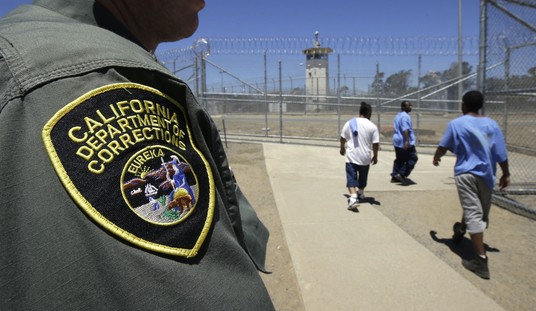I haven’t seen the Barbie movie but I’ve read several reviews coming from different perspectives which make me think I may need to rent it eventually. My expectation for this were about as low as they could be and the reviews I’ve seen from conservatives have suggested it lives up to those expectations. But even the conservative critics seem to have been surprised by just how ambitious this film is. It’s clearly trying to say something though there’s disagreement over exactly what the message is.
For instance, the Critical Drinker opened his review by praising the marketing team that sold this as a bland family comedy. It’s not that at all though. This isn’t a movie for 8 year-old girls whose message boils down to something like 90s era girl power. Instead he labels it “114 minutes of spiteful, bitter, mean-spirited, borderline unhinged hatred of men and everything even vaguely associated with them.”
To discuss it further we have to discuss some elements of the plot so if you’re concerned about spoilers this is where you should stop. The gist of the movie is that Barbies and Kens live in Barbieland a “peaceful feminist utopia” where the Barbies make all the decisions and the Kens just sort of hang around as simps who do what they’re told.
Something happens to Margot Robbie’s Barbie in particular. Each Barbie in Barbieland is changed by how an actual Barbie doll is being played with somewhere in the real world. Robbie’s Barbie decides she needs to travel to the real world in an attempt to find the child who has been playing with her doll and see what is going on.
Barbie and Ken played by Ryan Gosling get to the real world and find it very different from their own world. For Ken, the real world seems like a patriarchy in which he no longer has to take a back seat. He thinks this is fantastic and returns to Barbieland to set up a similar patriarchy. Meanwhile, Margot Robbie’s Barbie apparently returns to Barbieland to undo what Ken has done, putting the Barbie’s back in power, but also decides to leave Barbieland permanently for the real world.
So what is the message? For the Critical Drinker the film was “like a serial killer dressed in a Pikachu outfit.” The message is one of upending the patriarchy and “any kind of gender roles.”
Ben Shapiro’s gave a 40-minute take on the film and he also loathed it. His comments have launched an entire sub-genre of mockery aimed at Shapiro himself.
Polarizing conservative commentator Ben Shapiro hated “Barbie,” so much so that he aired his complaints in a 43-minute video review — which included an edit of himself setting fire to Barbie dolls in protest. But the internet has been flaming Shapiro, instead.
Shapiro announced the day the movie premiered that he had watched it and would soon upload a scathing review.
I really hate this particular gimmick by leftist media which has been around since at least Teletubbies. Progressives write progressive talking points into what is essentially children’s entertainment and then pretend to get a big laugh out of the fact that conservatives notice. Ha! Ben Shapiro is taking Barbie seriously! But wait and see. Some progressive group or other (maybe even the Oscars) will give the film an award for its clever feminist exploration of the world, confirming that the message is somehow significant and worthwhile so long as it’s being praised not mocked.
Anyway, National Review’s Jack Butler has a different take. He thinks conservatives are misreading the entire movie. Barbieland isn’t supposed to be a feminist utopia in his view, it’s a satire of simplistic feminism.
The emerging conservative take on Barbie seems to be that it is a shallow, man-hating, and repulsive screed, an assessment that probably owes a great deal to the fact that Barbieland is an ostensible feminist utopia in which all Kens are subservient to all Barbies. In the Wall Street Journal, former National Review critic Kyle Smith wrote that, “As bubbly as the film appears, its script is like a grumpier-than-average women’s studies seminar.” Upon leaving the movie, Ben Shapiro of the Daily Wire tweeted that “all you need to know” about it is that “it unironically uses the word ‘patriarchy’ more than 10 times.”…
…this interpretation fails to account for so much that it is surely mistaken. For one, the real world is not represented as quite the patriarchy Ken, with his superficial Barbieland brain, makes it out to be. After an initial montage (mantage?) that marks his realization of the patriarchy, Ken is rebuffed in all of his attempts to join the male hierarchy that purportedly dominates the world. He must return to Barbieland to institute it; what he institutes there is so shallow that it collapses almost as quickly as it is set up. Meanwhile, though Robbie’s Barbie restores female dominance in Barbieland, she chooses not to stay there, electing instead to become fully human. What it all appears to suggest is that Barbieland is not merely a superficial construct but an entirely satirical one: a kind of post-feminist satire of what feminists imagine a perfect world looking like and of what they imagine male dominance is like.
At this point, I’m wondering if all of these critics aren’t missing something which seems pretty obvious from the setup. Barbie is a coming-of-age story in which the coming-of-age mostly happens to characters who are off-screen, i.e. the real life girls playing with the Barbie toys. Barbieland is therefore a child’s view, specifically a little girl’s view of the world. To some extent that explains why Barbieland is a feminist utopia, because it’s girls playing with the dolls while the Ken’s (in the mind of a child) are still just another accessory.
And because I have daughters I can tell you that at a certain point the Barbie phase ends and girls don’t play with them anymore. They grow up which is good and necessary and also a little sad. So I think Butler may be on to something but I’m not sure Barbieland is a satire so much as a child’s understanding which may appear to have no room for men simply because little girls don’t have much insight into the inner-life of little boys.
And yet, that doesn’t mean the movie isn’t ultimately trying to make a progressive point. The San Francisco Chronicle published a review which describes the excitement in the theater as viewers realized just how progressive this movie seemed to be.
“Holy f—ing s—!” someone in the audience exclaimed after one character, a single mom played by America Ferrera, spoke to the Barbies about the contradictions and constraints that make being a woman so impossible. The game is rigged, Ferrera’s character says, with women bending over backwards to fit into the increasingly tiny space between “not enough” and “too much” when it comes to gender performance, beauty, confidence and motherhood. After the profane outburst, a clear and sincere expression of incredulity that this was happening in a Barbie movie, came a powerful eruption of applause from the audience…
With buckets of pink paint and a 64-year-old archive of dolls at its disposal, the Barbie movie takes a crack at healing everyone who struggles with the gender binary, whether it’s cis men craving human connection, women feeling trapped by unrealistic expectations, or nonbinary people wanting to be seen and understood.
I’ve seen other commenters on the left who seemed to see the film the same way, i.e. as an attempt to undermine the gender binary. That’s certainly an idea that is very hip on the left at this moment. And, to be fair. the Barbie toys really do represent a fairly narrow kind of femininity that most girls tire of as children. So maybe what the movie is trying to say is that Barbieland is a little girl’s fantasy of a feminist utopia based on a gender binary that is rarely so stark in the real world as it appears in pink plastic toys.
But that’s just a guess since I haven’t seen it. Maybe it really is just a vicious attack on men. Either way, there’s enough going on here that I’ll want to stream it eventually and form my own opinion from the source material.
Update: Another interesting review from someone who has seen the movie. His take is that Barbie, whatever it wanted to be about, is actually about the exhaustion of feminism as an idea. It has no real goals or prescriptions only a tired litany of complaints. This viewer also saw Ken as truly masculine in the sense that, despite being clueless and hapless, he nevertheless is able to change the Barbie’s world. Ken at least does something.
REVIEW OF BARBIE
I think this movie can be understood as feminism throwing in the towel. It's going through the motions, but it's an ideology that has accomplished all that it could and has now run into the brick wall of reality. There's no grand vision, no hope of anywhere else…
— Richard Hanania (@RichardHanania) July 24, 2023
Here’s a bit of it.
I think this movie can be understood as feminism throwing in the towel. It’s going through the motions, but it’s an ideology that has accomplished all that it could and has now run into the brick wall of reality. There’s no grand vision, no hope of anywhere else to go. All it wants to do is keep making the same arguments again and again as a kind of permanent therapy session.
The message ends up being subversive despite itself. The feminist complaining in the film lacks any direction or even solid program. In what’s supposed to be the crescendo, Gloria (America Ferrera) gives a speech about how women are expected to be perfect moms, smile, be sexy but not sluts, not be selfish, blah, blah, blah. There’s very little politics in the sense of political demands. Rather, it’s completely about norms, expectations, and how hard it is to be a woman because of how people see and judge you. It’s almost as if women’s problem is their baseline higher levels of anxiety and difficulty adjusting to what is ultimately a more individualistic society than conditions we evolved under.
We see this when Barbie and Ken go out into the real world. Barbie notices men hitting on her, with “undercurrents of violence.” Someone asks Ken what time it is, so he feels respected and like he’s on top of the world. He decides to take this idea of “patriarchy” and bring it back the Barbieland. When he gets there, he’s able to rule with his friends. They institute a constitutional reform movement, and even develop warfare. So when the Barbies were in charge everything was stagnant, but men actually introduce innovation and change.
There is no sense in the movie that women ever can actually be happy. The idea of making Barbie into a doctor or lawyer or whatever is now generations old. The movie beats us over the head with the idea that this did not solve all the problems of patriarchy. So what will?







Join the conversation as a VIP Member